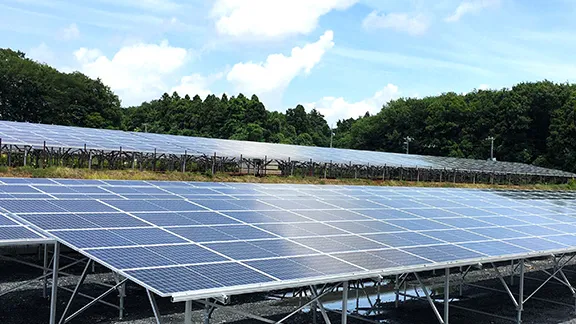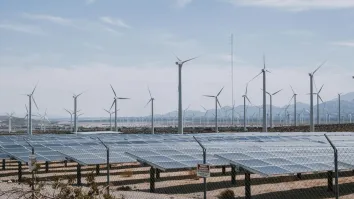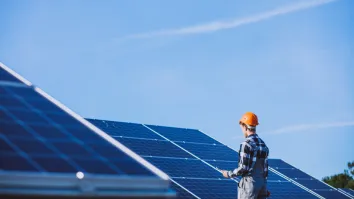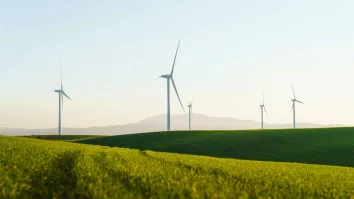What hydropower ranking can do for generation expansion
By Peter J. RaeMobilization of financing for power sector infrastructure development must be founded on a sound basis of technical, environmental, social, economic and financial principles. In Asia, when considering hydropower development as a key element of the generation expansion, it is extremely important to perform a comprehensive ranking of available projects to select those that can be developed according to industry best practices.
When compared to some other generation options, hydropower development offers challenges due to the nature of environmental and social impacts, the importance of site conditions, reliability of hydrological information, and the dominance of the civil works in construction. Ranking of potential hydropower projects must consider these challenges to arrive at a selection of projects that will be attractive for financing.
A ranking study should also consider the approach used for financing development. While private sector development using project finance is generally considered desirable for power system expansion, few hydropower projects are developed solely by this method. Where projects have been completed the investors involved have been willing to assume many elements of hydropower risk and to place balance sheet commitments to the financing package.
The attitudes of potential private sector investors should be considered as part of the hydropower ranking study, especially with respect to the risks that developers might perceive and the effect that risks would have on investment decisions.
Ranking of hydropower projects is required to properly balance the often competing issues associated with development. In particular, ranking must weigh environmental and social issues along with other societal benefits as part of the more direct least cost generation expansion planning analysis and financial performance.
This step in the development cycle is extremely important for a private sector investor, who must select a project that has a high probability of success within a reasonable development period. A poor selection can lead to a site that may fail to be developed after expenditure of significant venture capital.
Systems that would like to involve private sector investors in generation expansion will need to have a competent ranking of project available for evaluation. This step is required to enable investors to make a rational selection of how to invest their capital while at the same time being essential to satisfy the requirements of good international practices.
Development protocols such as suggested by the International Hydropower Association recommend that ranking be carried out as the first step in the development cycle.
Ideally, before making a selection for development, all projects should be prepared to a similar level so that the ranking is not skewed by assumptions (either optimistic or pessimistic) or poor quality information. This is particularly important in the case of hydrological and geological information, which represent the most important indicators of project revenue and cost respectively.
When dealing with projects on a regional or national perspective, one of the key benefits of hydropower is the possible complementarity among projects that exists due to differences in hydrological influences, reservoir regulation, and other characteristics. Complementarity can result in an increase in the firm energy for the overall system and a reduction in the total installed capacity supplying generation system expansion.
The ranking study must deal with the inter-relationships among hydropower developments to assess the extent to which complementary operation can be used to optimize the selected generation expansion sequence.
The ranking analysis is an essential step in identifying a rational generation expansion sequence for the country. In addition, international best practices for development of hydropower will require that projects are ranked to balance economic and financial issues along with environmental and social impacts.
The objective should be to select projects providing the least impact while meeting minimum economic and financial performance metrics. Capacity building in the procedures for planning according to such international best practice is an important element of achieving a development plan that can be financed.
The ranking studies should be performed while appreciating the requirements outlined in World Bank Operational Policies, Asian Development Bank guidelines, the Equator Principles, and others. Commercial lenders, multi-lateral agencies, and export credit agencies can have a signficant influence on the mobilization of financing for the hydropower generation expansion.
In addition, the hydropower industry has attracted significant public attention that affects the ability to mobilize finance. Accordingly, other documents such as the International Hydropower Association Sustainabilty Guidelines and the World Commission on Dams should be considered when considering the ranking of projects.
Comprehensive hydropower ranking studies require a broad range of data that should include meteorology, hydrology, geology, seismic, environmental, and social characteristics. The study must also include the power system characteristics in terms of demands for power and energy as well as the possibility for transmission system interconnection and the effects on the transmission grid.
The end product of the ranking is a selection of projects with criteria that can be used for analysis of generation investments. The study should focus on defining the principles to be adopted rather than making decisions too quickly, which might ultimately delay development. Key aspects considered by financiers include the impacts of hydropower projects on environmental and social conditions, project risks (hydrology, geology, and construction), reliability of energy yield, and financial performance.
It is important to recognize that not all of the available projects will be technically, environmentally, socially, and financially feasible. Screening is required to select those projects with the highest chances for successful development so that the effort on the subsequent, more detailed, power planning analysis is well focused leading to a practical development sequence for investment.
A key institutional difficulty for hydropower development is which entity has responsibility for ranking of projects. In many countries, there are studies available ranking hydropower sites that are believed to be suitable for development. However, private sector development should have been considered in the ranking process to ensure that the characteristics of the sites are amenable to private investment. This is especially important to minimize the development period and to enable a larger pool of developers to be able to participate in the sector. An improved approach to ranking would allow for public-private participation to screen projects for development.



















 Advertise
Advertise






